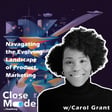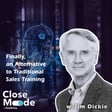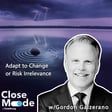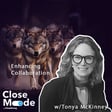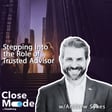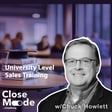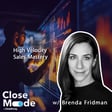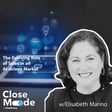
"Aligning Sales and Strategy" by Frank Cespedes
In this special episode, Brian Dietmeyer talks with Harvard Business School senior lecturer Frank Cespedes. Their conversation focuses on how to execute sales strategy and initiatives at the deal level. Frank says “Day-to-day sales activities must reflect strategic priorities—or the overall vision remains idle in slides and boardrooms.” Frank is the author of Aligning Strategy and Sales as well as Sales Management That Works (HBS Publishing). Forbes says "perhaps the best sales book ever" and Gartner, “a must read.”
Timestamps:
00:54 - Introduction of Frank Cespedes and discussion on his professional background and contributions to sales strategy.
01:07 - The influence of Cespedes' book "Aligning Strategy and Sales" on Brian's business approach.
02:25 - The impact of economic factors like interest rates on sales strategy execution.
06:14 - The motivations behind Frank Cespedes' focus on linking sales and strategy.
10:44 - The role of sales reps in executing company strategy and solving customer problems.
16:20 - Discussion on the importance of frontline sales managers in strategy execution.
19:02 - How technology and AI can enhance sales coaching and strategy execution.
22:54 - Differentiating between deal coaching and skill coaching in sales management.
27:12 - The evolving nature of strategic planning in response to market changes.
29:07 - Closing remarks and future topics of discussion.


